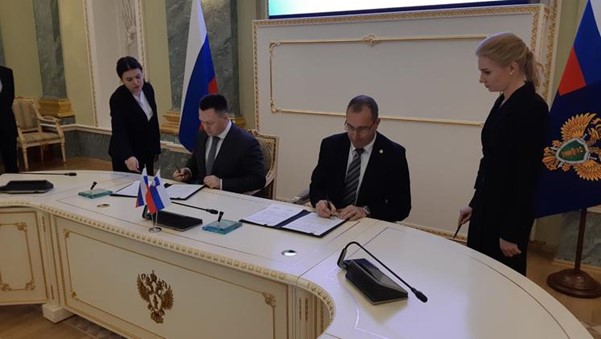By: Peter Truden
The indictment in the Trenta case, which also charges the current Prime Minister, Janez Janša, became final after a year and a half, as the out-of-court senate of the Celje District Court rejected all objections, so the trial can now begin, the web portal 24ur.com recently reported. The judicial clique has thus started yet another criminal procedure against Janša right before the elections. The chosen time, just like in the case of all previous parliamentary elections, is not a coincidence.
The Slovenian judicial system has the incredible feature of getting involved in the election match practically before every election, even though it has the status of an independent branch of government in the constitution. Proceedings against political representatives, specifically against the leader of the Slovenian Democratic Party (Slovenska demokratska stranka – SDS), Janez Janša, are actually interference in the democratic process, which, in a serious legal and democratic state would be examined and questioned – is this really an independent and impartial judiciary, or is it just an extended hand of the politics, which are satisfied with the additional attacks in the form of court proceedings?
It should be pointed out that the Patria affair alone affected three different parliamentary elections – in 2008, when Drago Kos, Milan Kučan and their helpers launched a “big bang,” and then the prosecutors and judges took over. All high-profile proceedings were timed to happen before the elections to the National Assembly in 2011 and 2014, when Janša was even imprisoned, which was a precedent that we are seeing in Russia today and that everyone is appalled by. However, at that time, the leader of the opposition was imprisoned in a country of the European Union. The elections in question were considered unfair by many lawyers, as the judicial mills had a significant impact on the democratic process, with the victories of the left in the elections. By annulling the convictions, the Constitutional Court only partially eliminated the damage to the convicts that were found guilty. The damage in the form of political consequences for our country, the economic situation of citizens, migration of young people abroad, low pensions, reforms of state subsystems, and so on, has not been measured by anyone, and because there was no public debate about this problem, history is now repeating itself.
This is how they deal with political opponents in Russia
Prior to this April’s elections to the National Assembly, the indictment in the Trenta case became final, as the out-of-court senate of the Celje District Court rejected all objections, which means that the trial can now begin. Let us remind you that the police investigation, in this case, began before the 2018 elections and that this is a completely made-up matter. As we have already reported, the case investigation was allegedly led by the famous Harij Furlan.
The Trenta case, just like many other things that are connected to the biggest opposition leader in the country and the most successful Prime Minister in independent Slovenia, is dragging on like a snake. As expected, things always come up right before the elections, and this time too, Forum 21 and its leader did not let us down. However, they missed the target once again. Namely, Janša bought the real estate in Trenta in 1992. It consisted of a building plot with a house number and a house right next to the Soča River, in the immediate vicinity of a motor camp and a larger apartment building. The location is among the most attractive in Trenta, as the plot of the estate also borders on the banks of the Soča River. Janša paid 1.32 million tolars for the plot, which would amount to somewhere around 25 thousand euros.
In 2005, when Janša was already the Prime Minister, he sold the land in question to Eurogradnja for 131 thousand euros, and the latter then sold it to Imos. The main complaint against Janša was that Imos overpaid for the land. So, according to the regime journalists and some “supervisory institutions,” this is considered corruption. According to them, Janša allegedly made too much money from the real estate sale; however, they forgot to consider both the market value and the fact that prices on the real estate market have changed significantly in recent decades – meaning, they have gone up. However, this fact was disregarded only in the case of Janez Jaša. They value their own real estate differently. Or, to put it another way, Milan Kučan bought the former social (state) house in Murgle for as little as 41 thousand German marks. Converted into euros, this would amount to 20,500 euros. It would be interesting to see if Kučan would be willing to sell his house for this price today. And Janez Stanovnik, the former president of the Association of the National Liberation Movement of Slovenia, sold a similar house in Murgle for 420 thousand euros. The question that arises here is: if Kučan decided to sell today, would Harij Furlan and the judiciary prosecute him and accuse him of corruption?
Janša: Russian advice materialised
Janez Janša responded to the 24ur reporting by writing: “The advice of the Russian Prosecutor Krasnov (who is on the EU’s blacklist) to the State Prosecutor-General, Šketa, has materialised.” With this, Janša reminded everyone of the signing of a “cooperation programme” between the Slovenian State Prosecutor-General, Drago Šketa, and the head of the Russian Prosecutor’s Office, Igor Krasnov in Moscow. The signing happened a little over a month before Putin’s army attacked Ukraine and a month before a new trial against the Russian opposition leader, Alexei Navalny, whom Putin imprisoned in a penal colony before the election so that Navalny could not endanger his position. The similarity with Slovenia is not a coincidence.

